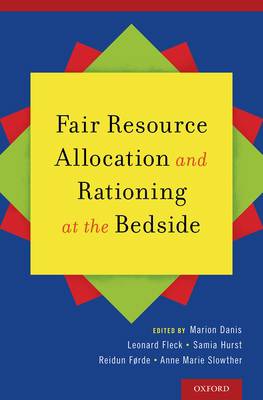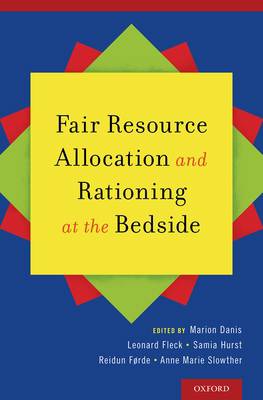
- Retrait gratuit dans votre magasin Club
- 7.000.000 titres dans notre catalogue
- Payer en toute sécurité
- Toujours un magasin près de chez vous
- Retrait gratuit dans votre magasin Club
- 7.000.000 titres dans notre catalogue
- Payer en toute sécurité
- Toujours un magasin près de chez vous
193,45 €
+ 386 points
Description
Health systems need to set priorities fairly. In one way or another, part of this important task will fall to physicians. How do they make judgments about resource stewardship, and how should they do so? How can they make such decisions in a manner that is compatible with their clinical duties to patients? In this book, philosophers, bioethicists, physicians, lawyers and health policy experts make the case that priority setting and rationing contribute significantly to the possibility of affordable and fair healthcare and that clinicians play an indispensable role in that process. The book depicts the results of a survey of European physicians about their experiences with rationing and other cost containment strategies, and their perception of scarcity and fairness in their health care systems. Responding to and complementing these findings, commentators discuss why resource allocation and bedside rationing is necessary and justifiable. The book explores how bedside rationing relates to clinical judgments about medical necessity and medical indications, marginal benefits, weak evidence based medicine, off-label use. The book highlights how comparative studies of health care systems can advance more effective and fair bedside rationing through learning from one another. From a practical standpoint, the book offers a number of strategies for health care systems and clinicians to work in tandem to allocate and ration resources as fairly as possible: how to foster more attention to fairness when rationing at the bedside, how to avoid exacerbating health disparities when allocating resources, how to teach about bedside rationing to students, how to discuss rationing more explicitly in the public arena and in the doctor's office.
Spécifications
Parties prenantes
- Auteur(s) :
- Editeur:
Contenu
- Nombre de pages :
- 480
- Langue:
- Anglais
Caractéristiques
- EAN:
- 9780199989447
- Date de parution :
- 30-10-14
- Format:
- Livre relié
- Format numérique:
- Genaaid
- Dimensions :
- 157 mm x 236 mm
- Poids :
- 748 g







